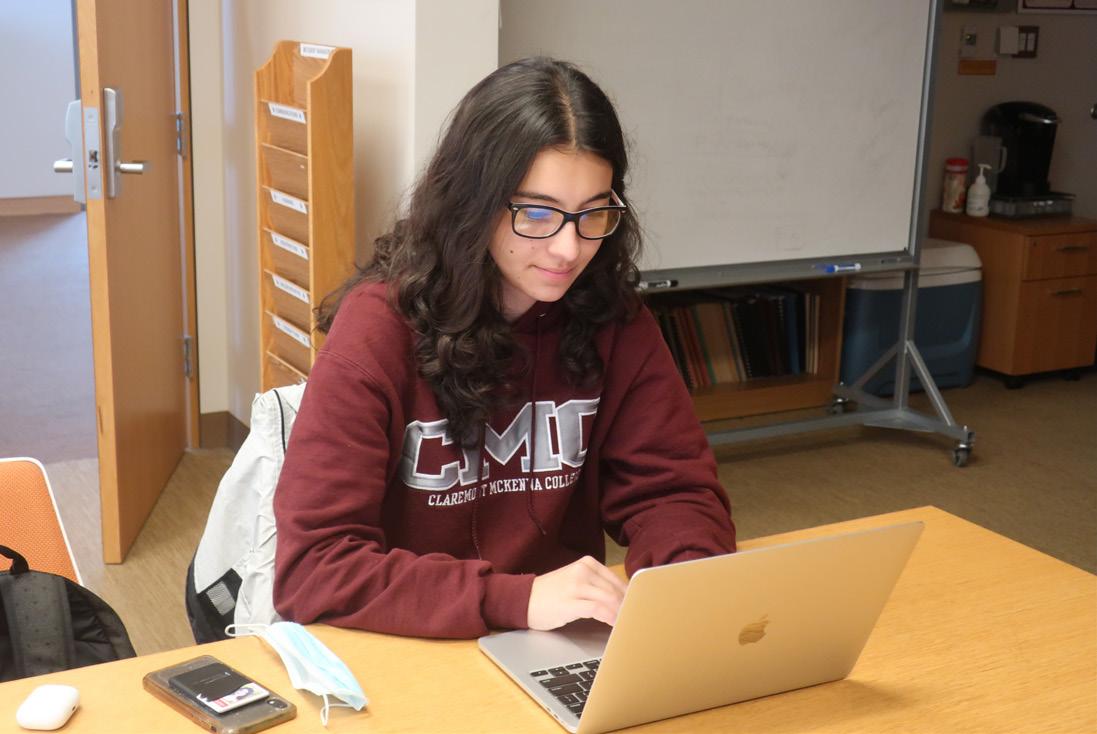
4 minute read
Project Updates
Photo credit: Rose Institute Photo credit: Rose Institute

Professor Fortner: New York City Mayoral Primary
Cameron Stevens ’23 & Sarah Simionas ’23
The NYC Mayor project examines the role of race, class, crime, and policing in the 2021 New York City Democratic Mayoral Primary race. Using data from the NYC Board of Elections, the US Census Bureau, the Prison Policy Initiative, and other sources, we identified the key demographic groups that pushed Eric Adams to victory. We found that Adams performed strongly with Black, lower-income, and less-educated voters, and received the majority of votes in areas with higher-than-average incarceration rates. We also analyzed survey evidence on attitudes towards crime and policing to better understand why Black voters supported a former police officer and a tough-on-crime candidate, despite the country-wide push for police reform in the aftermath of George Floyd’s murder. This project was conducted under the direction of Professor Michael Fortner, a new addition to the CMC Government Department faculty and the Rose Institute, and will be published by the D.C.-based Niskanen Center in the fall of 2021.
Professor Fortner: “Divided We Fall” Article
Cameron Stevens ’23 & Sarah Simionas ’23
Alongside the NYC Mayor project, we are also writing an article for Divided We Fall, a bipartisan nonprofit news publication, discussing the difference between voters’ opinions on crime and policing and the more polarized positions politicians often take. The article draws from recent and historic national and cityspecific data to show that the rhetoric of public officials on these issues often pushes a different narrative than what the public believes.
Professor Rose: Book on the Minimum Wage
Tara Mehra ’23
Over the summer, Tara worked as a Research Assistant for Professor Shanna Rose on her upcoming book project about federalism and the minimum wage. In particular, this entailed researching the legislative and voting history of the Fair Labor Standards Act (FLSA). Thus far, Tara has created a database of records,
including newspaper articles and congressional hearings, relevant to Prof. Rose’s research on the FLSA. She also used the articles, hearings, and legislation to outline the legislative history of the FLSA. To support the data-driven nature of Prof. Rose’s work, Tara found and sorted data to create a repository of Congressional partisan voting behavior on the FLSA. Nathan Tran POM’23 is excited to carry on Tara’s work this fall, especially by delving more into the fiscal aspects of Professor Rose’s research.
Tribal State and Federal Recognition
Maya Kurkhill ’23, Miriam Farah ’23, Desmond Mantle ’23

On October 11, 2021, Professor Wallace Cleaves spoke at the Athenaeum in a talk titled “The Challenges and Opportunities for Rematriating Tovaanger.”(Photo courtesy of Claremont McKenna College)
The tribal recognition project explores state and federal recognition for indigenous tribes using the Gabrielino/Tongva’s experience as a case study. The Tongva people have gained recognition in the state of California but are one of at least fifty-five aboriginal tribes that are unrecognized by the federal government. Federal acknowledgment can affect the designation of reservation land, protection of burial sites, and access to medical, housing, and educational resources. Our team is now in the process of communicating with tribal leadership to further all of these areas of research, as well as receiving data from the tribe to make projections about the financial impact of federal recognition. Through these communications, we can gain a better understanding of state recognition, such as the precedent it sets for other institutions to participate in land acknowledgments and cultural preservation. Professor Rossum is the faculty advisor for this project.
Professors Miller and Sinclair: CA & NY Survey
Nohl Patterson ’22 & Daniela Corona ’23
The governors of the nation’s two largest blue states, California and New York, recently faced accountability moments, as New York Governor Andrew Cuomo resigned his office in August, and California Governor Gavin Newsom survived a recall effort in September. In a survey of residents of the two states during this period of political upheaval, the Rose Institute of State and Local Government at CMC compared attitudes of California and New York voters toward the power to recall public officials, their governors’ performances, and problems facing the states. Unlike other recent polls that have focused exclusively on the views of California voters regarding Governor Newsom and the recall process leading up to the California recall election, the CMC-Rose Institute Poll provided a comparison of public opinion in these two, large, Democratic states— one of which allows for the recall of elected officials, while the other does not.
The poll, designed by the Rose Institute and conducted by YouGov, surveyed 2,000 respondents in California and 1,675 in New York between August 30, 2021 and September 10, 2021. Professor J. Andrew Sinclair and Professor Ken Miller, both faculty in the CMC Government Department, developed and oversaw the poll comparing political attitudes in California and New York. CMC students Nohl Patterson ’22 and Adhitya Venkatraman ’22 led a team of student research assistants contributing to the analysis of the data.





